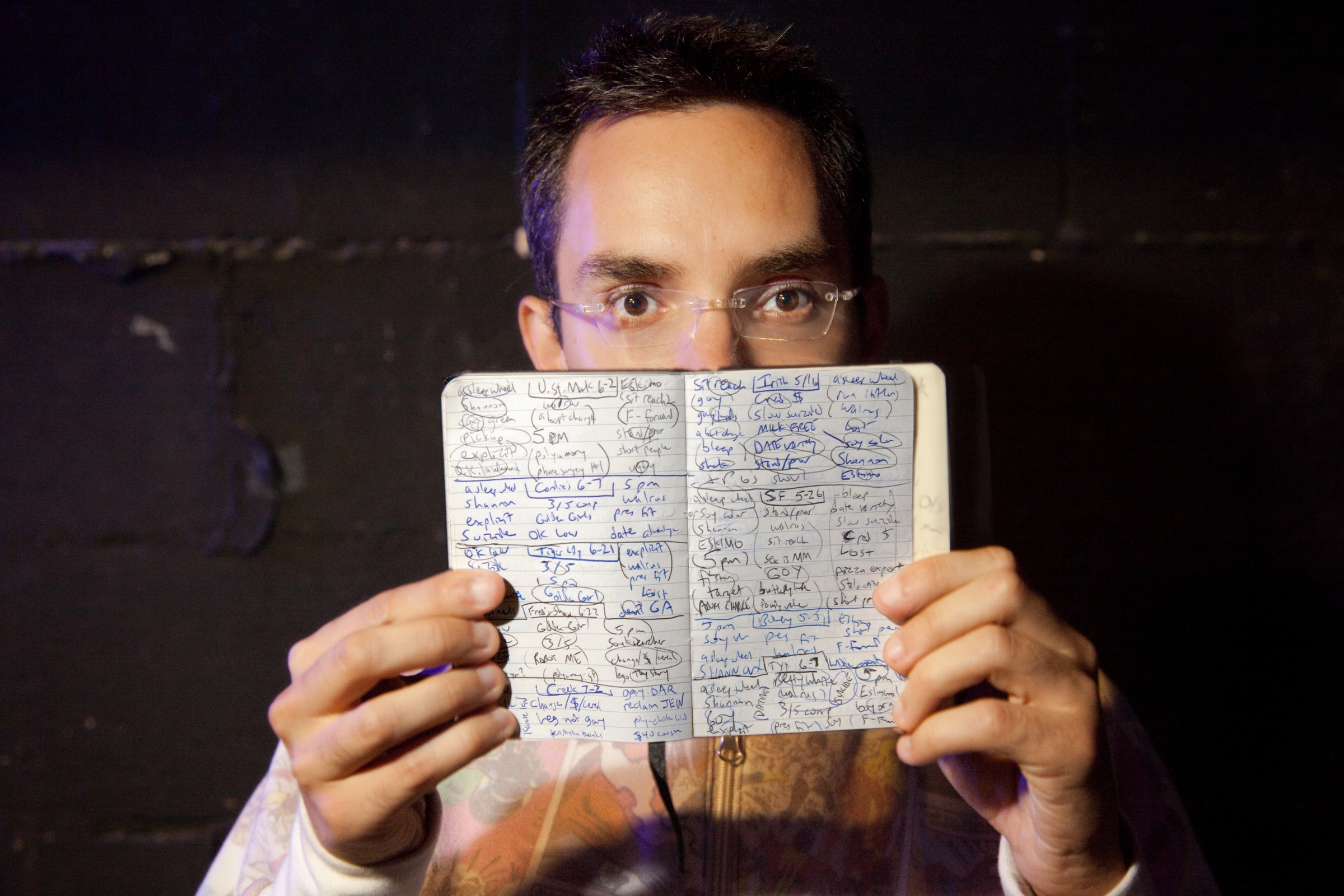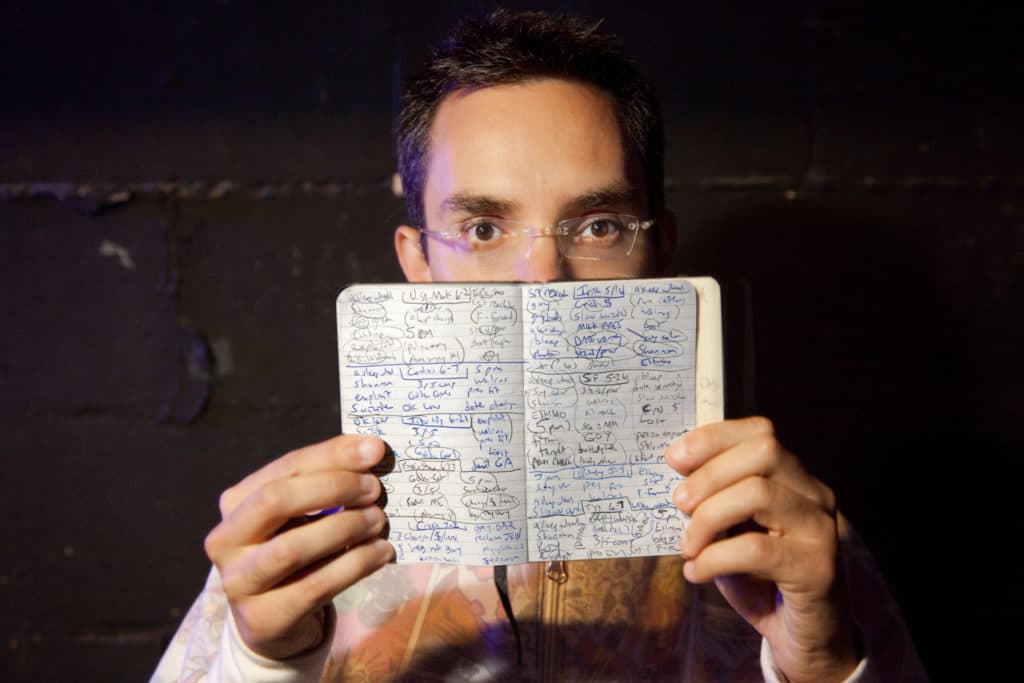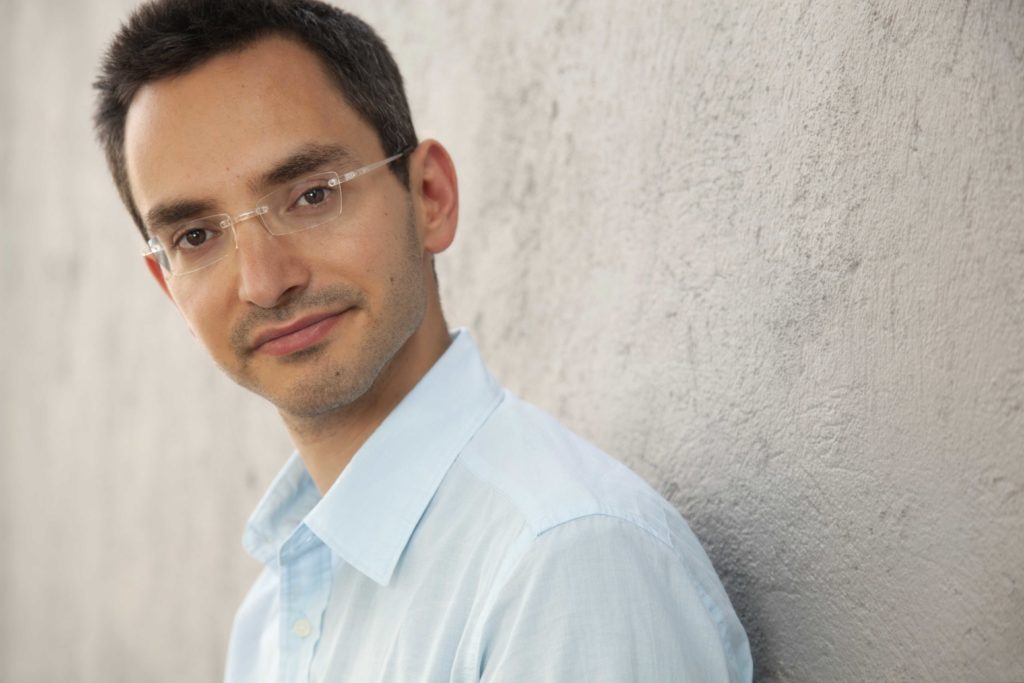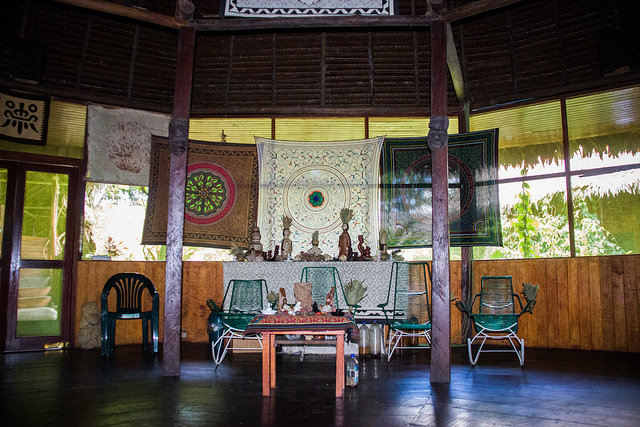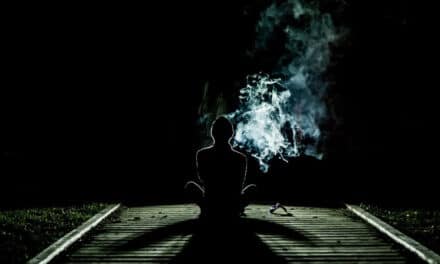For someone whose comedy isn’t overtly psychedelic, stand-up comic Myq Kaplan has a surprising amount of experience with the use of ayahuasca for self-healing and spiritual growth. Numerous medicine ceremonies have left him with some valuable methods of dealing with day-to-day life, as well as potent insights on what may happen to consciousness when life ends.
In a phone interview with Psychedelic Times, Myq (pronounced “Mike”) discussed his ayahuasca-based learnings in a grounded, rational way, avoiding flowery language and theistic terminology even when waxing metaphysical.
Thanks for speaking with us, Myq! What do you get out of these ayahuasca ceremonies? What keeps you coming back?
I have a good friend with whom I’ve done several ceremonies. One way we have found to think about these ceremonies is the concept of “life coaching and death coaching.” An example of life coaching might be: “Oh, the way I have been interacting with my mother is not enjoyable or productive, so I’m going to strive to contextualize it better when I talk to her from this point on.”
Here is an example specific to my life. My girlfriend and I had to move, and I was sort of stressed about it: “What if we don’t find a place? What if we find a place, and it’s too expensive? What if we don’t like it, or I have to stay with my mom, live in a hotel or crash on couches?” I remember going through all the specific possibilities during the course of an ayahuasca session, and none of them were scary or super stressful. It gave me this nugget: “It might suck, but it’s not scary.” This realization completely calmed me down in the ongoing process until we did find a place. So sometimes I come out of a ceremony with practical insights about better ways to live my life.
Forgiveness is a theme that has come up a lot in ceremony, although I haven’t necessarily been wronged as pronouncedly as some people who have undergone horrible things. For example, a few years ago there was a shooting at a church in South Carolina, and I read in the news that the church parishioners who lost members of their family to this horrendous act forgave the murderer. That is valuable. There are so many people who wouldn’t forgive something like this. I certainly don’t ever want to tell anyone that there is a right way to be, or a better way to be, but it certainly resonates when I think about those people exhibiting such forgiveness. I can only imagine that in their experience, it was the best thing for them. It’s what they feel; it’s what they want; it’s what they need; it’s what they believe… These ayahuasca experiences help me think about those things.
The first two times I drank ayahuasca were very love-focused: self-love, love for others, love for everything—just love in all directions. The feelings that I was left with were pure love and gratitude, and just wanting to radiate that as much as possible. The third time, I had maybe eaten too much earlier in the day, so was physically a little agitated. I was nauseous and in pain, and so when the experience began, that pain manifested emotionally as well. I thought about a few people I had wronged, a few relationships that had not gone the way I would have wished they had.
At one point, I thought about the movie Groundhog Day. My girlfriend had never seen it, so we watched it the week before a ceremony—not on purpose, like “Let’s watch Groundhog Day and then go do ayahuasca!”—but since it was in my psyche, I thought about it during the experience. One of the things about the movie is that the main character goes around every day fixing the same problems over and over again: catching the kid falling out of the tree, doing the Heimlich maneuver…
Obviously, I can’t go back and fix the wrongs that I did specifically to these people, but there’s some cyclical nature to life, in that I can now decide to never wrong somebody in those ways again. Now, if a person says a thing, I will react in a different way. Life is like one big Groundhog Day. If you can accept the idea that we’re all one—deep down, there is this oneness that we all stem from and can tap into.
The guy who introduced me to ayahuasca was like, “Argh! I hate this hippie stuff and auras and the idea that we’re all one, but that’s what I’m experiencing!” So just in the limited sphere over which I do have potential control or can access, I strive to fix the things that I could have done differently in the past and live as positively as possible in the future.
Now that you’ve given me an idea of what you mean by “life coaching,” can you explain what you mean by “death coaching”?
I think my girlfriend coined that term. I’m definitely a more spiritual person now than I was before I ever did a ceremony. I don’t think it’s useful to have a statement as short and devoid of context as “I now believe in a specific deity, framework or afterlife,” but another thing that my buddy and I have talked about is that sometimes the specific visions that we have—which aren’t necessarily the most important things, but the feelings they invoke and the mental conversations that go through the head during these times—seem like they have a kind of reality to them. We, of course, recognize that as fallible human beings or whatever we are, nothing is for sure, but this is the way my buddy put it: If somebody asked me, “What do you think happens to our consciousness when our bodies die?”, then the answer would be, “I don’t know, but if I do know, then this is exactly what it’s like.”
I’m sure you’re familiar with the idea that since DMT, the active ingredient in ayahuasca, is the substance that floods our brain when we die, going through the ceremony must have something in common with the experience of dying. If you Google “ayahuasca art” or “DMT art,” sometimes you’ll see similar types of colorful imagery. There are people who say, “I saw a lady who looks like this,” and then you can find a painting and they say, “That’s the lady that I saw!” Memory is obviously a fallible thing, but definitely, a lot of people see similar, colorful things. My friend dubbed this “The Pattern.” The Pattern is sort of this catch-all description of the universe, or all of existence… We are all part of it.
It always was confusing to me how we can look up at the sky and see the Milky Way: How do we see it if we’re in it? In the same way, how do we see the universe if we’re in it? It’s not like we’re in the universe like we’re in a room; we are the universe. Each of us is a small part of the universe.
So, sometimes these philosophical concepts manifest visually, like the idea that our consciousness was part of everything before our bodies existed. The matter and energy that would eventually come to make what we call ourselves was part of the stuff that was just swirling around in the universal brew… and then our consciousness bulges out of that. Every person is a consciousness bulge from the pattern that is still part of the pattern, while bulging out of it. You can interact with these other bulges via laughter, love, talking and communication.
Let’s zero in on the way you interact via laughter. What sort of impact have these experiences had on your approach to comedy?
There was one time that I had almost no visions at all, but just sort of a clarity of mental capacity focused on the idea that I want to focus an hour of comedy around the concept of love, forgiveness and kindness. There’s so much comedy coming from a place of negativity or complaining about things that make sense to complain about—societal woes and that kind of thing—but to talk about the things that I consider important and valuable in ways that are also hopefully funny—these are things that ayahuasca has helped me to dial in and amplify.
But sometimes, it’s just like the Zen saying: “Before enlightenment: chop wood and carry water. After enlightenment: chop wood and carry water.” We’ll go through these experiences and say, “Wow! I just experienced that thing! Now what?” Well, I guess keep doing the things I was doing, amp up the things I want to keep doing, and try to edit out the things that aren’t as necessary. Decide which things are worth doing, and keep doing or start doing those things… whether in life or in comedy.
We are grateful to Myq for speaking with us. You can check out his website here and follow him on Twitter here. His new comedy album No Kidding can be found here.

